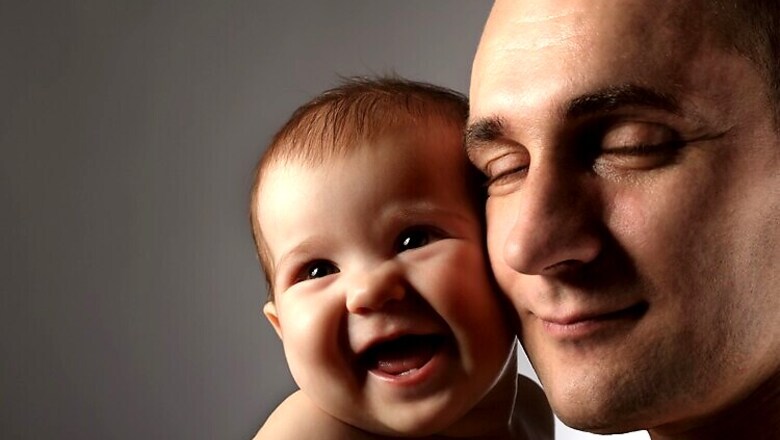
views
New York: While tracking the weight of over 10,000 men from adolescence to young adulthood, it has been found that men gain enough fat after they become fathers for the first time and it raises in them the risk of heart disease, diabetes and cancer, a study says.
All those leftover pizza crusts they snatch from their kids' plates add up, said researchers from Northwestern University's Feinberg School of Medicine.
A typical six-feet man who lives with his child gained an average of about two kilogram (kg) after becoming a first-time dad. In the same period, a six-feet man who does not live with his child gained about 1.5 kg, the results showed.
That is a 2.6 percent rise in BMI (body mass index) for resident dads and a two percent rise in BMI for non-resident dads after controlling for other variables.
By contrast, the average six-feet man who was not a father actually lost more than half-a-kg over the same time period.
"Fatherhood can affect the health of young men. The more weight the fathers gain and the higher their BMI, the greater risk they have for developing heart disease as well as diabetes and cancer," said lead author Craig Garfield, associate professor of medical social sciences at Northwestern University.
The study controlled for other factors that could contribute to weight gain such as age, race, education, income, daily activity, screen time and marriage status.
It is already known that marriage results in a weight gain for men. The fatherhood weight gain is in addition to the increase resulting from marriage. New fathers' weight gain is due to changes in lifestyle and eating habits.
"You have new responsibilities when you have your kids and may not have time to take care of yourself the way you once did in terms of exercise," Garfield said. "Your family becomes the priority."
Eating habits may shift as the house fills with cookies, ice cream and other snack food.
"We all know dads who clean their kids' plates after every meal," Garfield added.
Previous research by Garfield showed new fathers have an increase in depression symptoms in the early years after their child's birth.
The medical field needs to think about how can we help these men of child-rearing age who often do not come to the doctor's office for themselves, the authors said in the study published in the American Journal of Men's Health.
Image Courtesy: Shutterstock




















Comments
0 comment